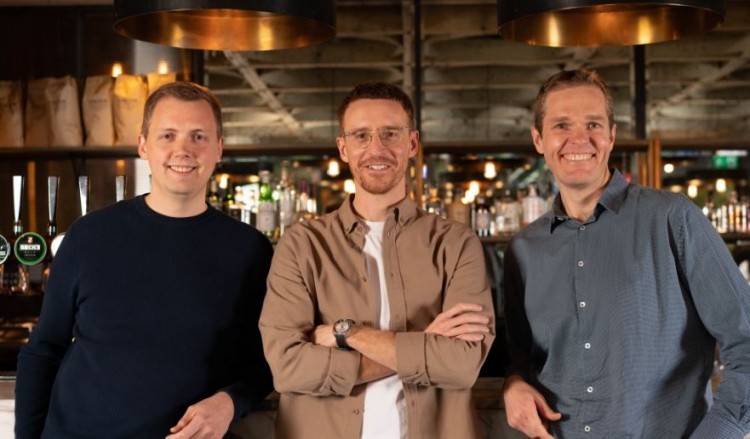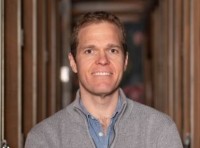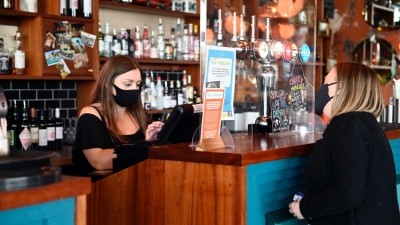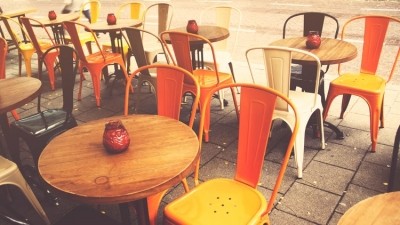Is your kitchen ready for the Darkside?

No, it doesn’t have the same ring to it as the ‘battle between good and evil’ does. Yes, this is a tenuous link between Star Wars and the pub trade, but with good reason. For instance, to some, the world of online shopping and ordering is indeed a dark place, but with the coronavirus still in full force it might now – and even perhaps long after this pandemic fizzles out – be time to consider Vader’s offer when it comes to the pub trade.
So, the question is, will you join the Darkside of the Force and set up a dark kitchen?
Retailers, particularly in grocery, have long had dark shops where customers’ online orders are picked before being sent out in trucks to their homes. This has been a bigger focus for supermarkets this year as demand for online shopping has been driven up during the pandemic.
Pubs and other hospitality businesses have also seen an increase in demand for takeaway and deliveries. Arguably this has been driven out of necessity, but it does show that when the offer is there, customers will take it. However, the sector isn’t at the same level as supermarkets when it comes to the dark side of the kitchen.
You also only have consider the continued success of traditional takeaways in the UK – the Chinese, Indian, fish and chip shop, and the pizzeria. Brits love food they can take home, it’s part of our culture.
Who’s behind RBC?
Stefan Cosser, operations director:
- 10-year cheffing career, including managing the creative team at Heston Blumenthal’s The Fat Duck Experimental Kitchen for over five years, including development for Heston’s Berkshire pubs The Hinds Head and The Crown.
- Food consultant focused on boosting innovation and operational projects within branded restaurants, fast casual and QSR operators including Loungers, Ei Group, Brasserie Blanc and White Brasserie Company pubs, Wagamama, Ole & Steen, Parkdean Resorts and Hilton Hotels.
Brett Boyers, commercial partnerships director:
- Brett has over 20 years’ experience in restaurant openings, operations and franchising in both the UK and overseas.
- His extensive industry experience includes with restaurant groups including The Restaurant Group (TRG Concessions), Boparan Restaurant Group and Individual Restaurant Company.
- He has run franchise operations for brands including Giraffe, Harry Ramsden's and Ed's Diner.
Toph Ford, brand director:
- Toph has worked in the hospitality and foodservice industries for over 20 years. He originally trained as a professional chef, before deciding to use his food science degree background to help support industry leaders, across hospitality, food retail and manufacturing, with food development.
- He was head of food and marketing at Leon Restaurants for four years.
- His CV also includes being part of the senior NPD team for retail and foodservice at M&S.
But so is the pub and it is important not to deviate from the fact that, under normal circumstances, consumers love being in pubs to eat and drink. Yet, even when the country isn’t being battered by the coronavirus, there are quiet periods in trade that have the potential to yield much needed income. And this is where dark kitchens in pubs can play a role.
Three hospitality sector heavyweights who spoke to The Morning Advertiser prior to launching their new business the Restaurant Brands Collective (RBC) believe the dark kitchen could provide a significant boost to a pub’s income during quieter trading times, and could also be an immediate solution to venues having to close due to coronavirus restrictions.
But what is a dark kitchen? In essence, it is a kitchen that exists purely to service online orders, either under an existing brand or one dedicated to online ordering sites such as Deliveroo. It is the latter where RBC founders Stefan Cosser’s, Brett Boyers’ and Toph Ford’s interests lie.
They have a growing portfolio of what they call white label brands that they can roll out into pubs with a host of support, including ready-to-go names, photography, menus as well as set up support and guidance.
Not a response to coronavirus
Cosser, who once managed the creative team at Heston Blumenthal’s Fat Duck Experimental Kitchen, is RBC’s operations director and says this business is not in response to the coronavirus pandemic, but a movement towards what consumers are looking for.
“Toph [Ford] and I have been thinking and talking about this concept for a while and looking at how businesses play in the delivery space,” he explains.
“It has been facilitated by Covid and during the lockdown people have been jumping on the bandwagon, but people do want delivery concepts.”
According to Boyers, who is RBC’s commercial partnerships director, the current circumstances haven’t led to the creation of RBC, and he explains: “There’s no secret, there’s growth in the delivery market and virtual brands are big in the US. There’s an opportunity for people to drive sales through their business without the need to bring in additional staff and to spend more on equipment.”
The concept, he says, is about driving incremental sales using the infrastructure pubs already have – chefs, kitchen equipment and space. And it isn’t a central London focus either, in fact RBC will be focusing its attention on the commuter belts where they believe there isn’t an interesting or big supply of interesting and good quality food options.
“A lot of those locations are supported by local pubs, we see the opportunity to link up with them,” he adds.
But why does it have to be a new brand, surely pubs can just plonk their existing food offers on Deliveroo or another platform and sell that way at low or no additional cost? For Cosser, pub menus aren’t designed for online, but also many operators don’t have suitable marketing, imagery or even consumer ratings to launch a strong offering.
“Pubs can put their own businesses online,” Cosser explains. “But do people order pub food online? When they’re looking at delivery they’re looking at things like what’s available and they want to validate it on social before placing an order.
“To get it right, it’s all about good visuals, feedback and ratings and that takes a lot of work to get it right and then to deliver the dishes.”
What the trio are offering to the pub sector is similar to a franchise, with three brands available at the moment and more to launch soon. Pubs can buy into a brand name with menus, imagery and good online ratings which they then provide from their kitchens during quieter periods.
It’s proper brands
Boyers explains: “This isn’t a logo sitting on Deliveroo, it’s proper brands with marketing and seasonal changes, it’s about being part of a larger brand that gives confidence.
“Our approach is it’s all virtual, and we have the capacity to create white label menus where an operator may not have the skill to develop great dishes, we can do that for them and create a nice, rounded food offering.”
Summarising, Ford, who is RBC’s brand director, says: “This allows the pub to focus on their primary business and then deliver a slick delivered food offer when they need to – great for a wet-led pub.”
The three brands currently in the portfolio are Mac & Co, a gourmet mac and cheese brand; fried chicken brand The Wingstitutel; and Californian-style smashed burgers and fries concept operating under the name of Pickled Pink. There will also be an evolution of brands with foods focusing on wellbeing, katsu, breakfast, Mexican, desserts, sweet treats and gifting to ensure RBC covers all dayparts and occasions.
Pubs looking to get onboard would need to pay an initial fee, which the team assures isn’t substantial, while there will also be royalties based on turnover. “It’s not big money, it’s something we consider low risk,” says Ford.
While Cosser adds: “From a business point of view it’s incremental sales, it’s tough out there right now and if you do just a dark kitchen that’s tough too, but if you have a combination of both then it is easier.
“Our approach is incremental sales opportunities and from our experience in the industry we’re looking at brands that offer a good uplift in sales, where you can tap into one or more of our brands and use the same ingredients to deliver the dishes.
“The virtual space allows us to do this,” he continues. “You see windows into all of the different brands on Deliveroo and there are more offering more options to consumers.
“Delivery is here to stay, it’s been growing over the last couple of years and growing this year too, in the long-term people will go back into their offices but we believe delivery is in the future too.”
So, after all that, perhaps Skywalker still wouldn’t have joined the Darkside, but then he didn’t run a pub.










